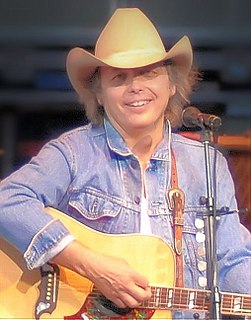
Dwight David Yoakam is an American country music singer-songwriter, actor, and film director. He first achieved mainstream attention in 1986 with the release of his debut album Guitars, Cadillacs, Etc., Etc.. Yoakam had considerable success throughout the late 1980s onward, with a total of ten studio albums for Reprise. Later projects have been released on Audium Music, New West, Warner, and Sugar Hill Records.

Alvis Edgar Owens Jr., known professionally as Buck Owens, was an American musician, singer, songwriter and band leader. He was the lead singer for Buck Owens and the Buckaroos, which had 21 No. 1 hits on the Billboard country music chart. He pioneered what came to be called the Bakersfield sound, named in honor of Bakersfield, California, Owens' adopted home, and the city from which he drew inspiration for what he preferred to call "American music".
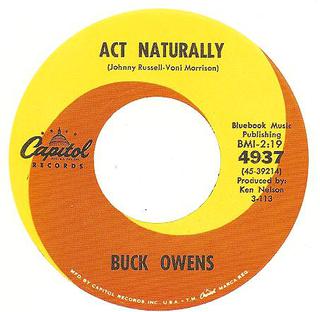
"Act Naturally" is a song written by Johnny Russell, with a writing credit given to Voni Morrison and publishing rights transferred to Buck Owens. It was originally recorded by Buck Owens and the Buckaroos, whose version reached number one on the Billboard Country Singles chart in 1963, his first chart-topper. In 2002, Shelly Fabian of About.com ranked the song number 169 on her list of the Top 500 Country Music Songs.

The Desert Rose Band was an American country rock band from Los Angeles, California, founded in 1985 by Chris Hillman, with Herb Pedersen and John Jorgenson. The original lineup included Bill Bryson on bass guitar, JayDee Maness on pedal steel guitar, and Steve Duncan on drums. In the late 1980s and early 1990s, the band charted several hit singles on the US Billboard Hot Country Singles & Tracks charts until disbanding in February 1994.
"Heartaches by the Number" is a popular country song written by Harlan Howard, and published in 1959. The sheet music was a best seller in both the US and Britain in January 1960.

If There Was a Way is the fourth album by Dwight Yoakam. Five of its tracks would rise into the Top 40 of the Billboard Hot Country Singles chart in 1991 and 1992. They were "Turn It On, Turn It Up, Turn Me Loose" at No. 11, "You're the One" at No. 5, "Nothing's Changed Here" at No. 15, "It Only Hurts When I Cry" at No. 7 "Send a Message to My Heart", at No. 47, and finally the No. 18 "The Heart That You Own".

Buenas Noches from a Lonely Room is the third album by country singer Dwight Yoakam. The album contains Yoakam's first two No. 1 Hot Country Singles singles. The first was "Streets of Bakersfield," a duet with country music veteran Buck Owens, who had originally released a version of the song in 1973. The second was an original composition of Yoakam's titled "I Sang Dixie." A third song on the album, "I Got You," also an original composition, peaked at No. 5. The title song, "Buenas Noches from a Lonely Room ," also charted, but only to the No. 46 position.
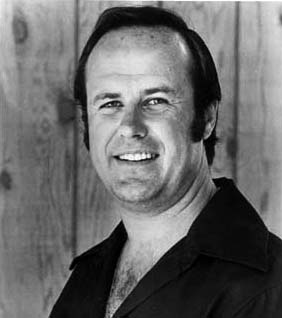
Donald Eugene Ulrich, best known by the stage name Don Rich, was an American country musician who helped develop the Bakersfield sound in the early 1960s. He was a noted guitarist and fiddler, and a member of The Buckaroos, the backing band of country singer and Don's best friend Buck Owens. Rich was killed in a motorcycle accident in 1974 at the age of 32.
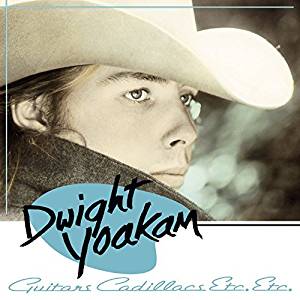
Guitars, Cadillacs, Etc., Etc. is country music artist Dwight Yoakam's debut album. It was also the first of three consecutive No. 1 Billboard Country Albums for him. The album was the first of more than a dozen Yoakam albums featuring his collaboration with record producer-guitarist Pete Anderson.

Hillbilly Deluxe is the second album by country music singer-songwriter, Dwight Yoakam. Released in 1987, it was Yoakam's second consecutive No. 1 album on the Billboard Country Albums chart. Four tracks were released as singles with each becoming Top 10 hits on the Hot Country Singles chart in 1987 and 1988.
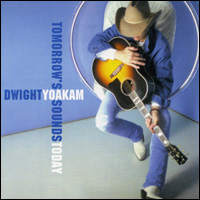
Tomorrow's Sounds Today is the eleventh studio album by country music artist Dwight Yoakam. This album was released on October 31, 2000. It rose to No. 7 on the Billboard Country Albums chart. There were two charting singles among its tracks: "What Do You Know About Love" at No. 26 and "I Want You to Want Me" at No. 49 on the Hot Country Songs chart. Also included are two duets with Buck Owens, who was a big influence on Yoakam's musical style. It was also Yoakam's last studio album for the Reprise label. After that album's release, Yoakam left Reprise for Warner Bros. in 2001.
"Together Again" is a 1964 song by United States country singer and guitarist Buck Owens.
The Bakersfield sound is a sub-genre of country music developed in the mid-to-late 1950s in and around Bakersfield, California. Bakersfield was the first subgenre of country music significantly influenced by rock and roll, relying heavily on electric instrumentation and a strongly defined backbeat. It was also a reaction against the slickly produced, orchestra-laden Nashville sound, which was becoming popular in the late 1950s. The Bakersfield sound became one of the most popular and influential country genres of the 1960s, initiating a revival of honky-tonk music and influencing later country rock and outlaw country musicians.
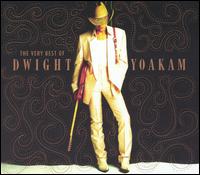
The Very Best of Dwight Yoakam is the third greatest hits compilation album of songs recorded by country music artist Dwight Yoakam. The album comprises twenty hit singles from his career.

Dwight Sings Buck is country music artist Dwight Yoakam's 17th studio album, and a tribute album to Buck Owens. The album was released on October 23, 2007, by New West Records.
The discography of Buck Owens, an American country music artist, consists of 39 studio albums, 16 compilation albums, 9 live albums, 97 singles, and 12 B-sides. After recording under the name Corky Jones and releasing a string of singles in the mid-1950s, Owens signed a recording contract with Capitol Records in February 1957.
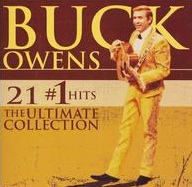
21 #1 Hits: The Ultimate Collection is an album by Buck Owens and his Buckaroos, released in 2006. Released shortly after his death, it is a single-disc compilation containing all of Owens' number one chart hits.

Just Lookin' for a Hit is the first greatest hits compilation album released by American country music artist Dwight Yoakam. It includes eight singles from his 1980s albums for Reprise Records, as well as two newly recorded cover songs: "Long White Cadillac", originally recorded by The Blasters, and "Sin City", originally recorded by the Flying Burrito Brothers.

"Just Call Me Lonesome" is a song recorded by American country music artist Radney Foster. It was released in July 1992 as the lead single from his debut album Del Rio, TX 1959 and was co-written by Foster and George Ducas. It peaked at No. 10 on the Billboard country music chart in 1992 and was Foster's first release independently of the duo Foster & Lloyd.
Scott Joss is a songwriter, guitarist, mandolin player, singer, and fiddle player primarily in the American Country music tradition who has performed with Merle Haggard, Dwight Yoakam, Pete Anderson, Tiny Moore, Roy Nichols, Dusty Wakeman, Kris Kristofferson and Jana Jae and is a successful solo artist.














